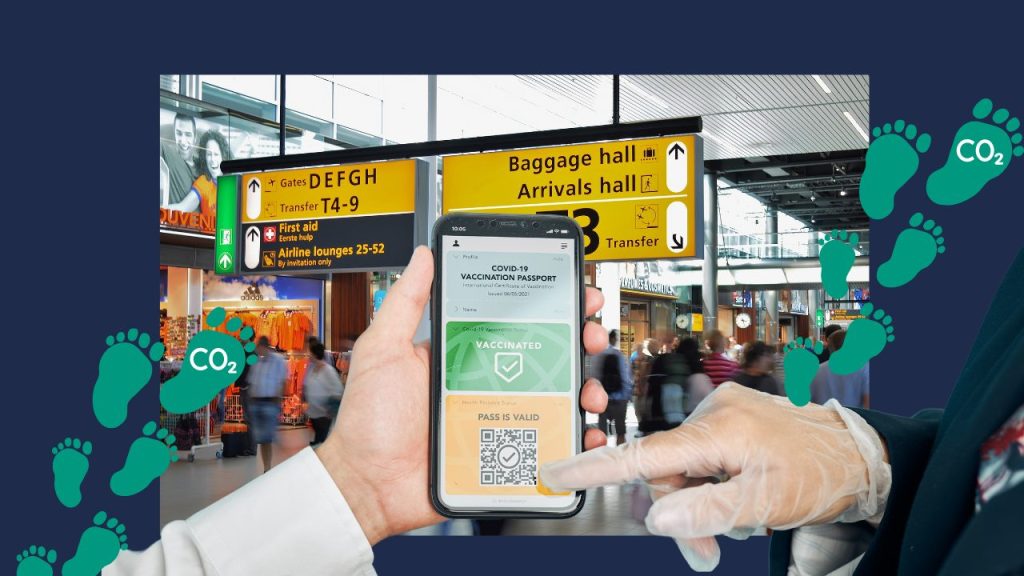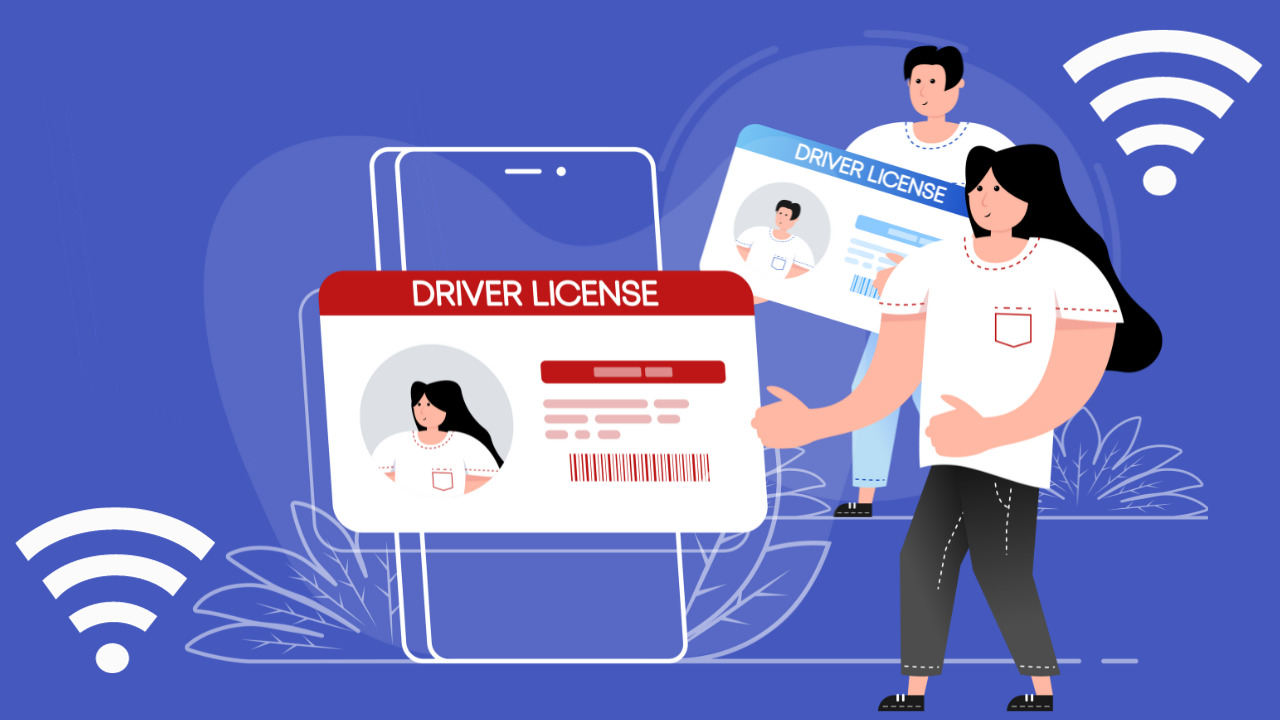Air travel accounts for roughly 2.5% of global carbon dioxide emissions, they say.
2.5% is 0.025 out of 1.
A minimal fraction of the carbon dioxide emissions which are being used as an excuse to implement even more monitoring and control. So, what exactly are carbon footprint passports? Imagine a document that not only records your personal details and travel history but also provides a clear overview of the environmental impact of your journeys. This concept aims to create a tangible link between an individual’s travel behavior and its associated carbon emissions, is like the predecessor: the covid vaccine passport; an old way of mass control.
The implementation of carbon footprint passports holds great potential risk in promoting surveillance practices. By providing travelers with a cheap explanation of the environmental consequences of their journeys, it encourages them to stay at home.
The global conversation around sustainable travel has seen several countries taking proactive steps to reduce air travel’s environmental impact. Earlier this year, Belgium introduced new taxes targeting private jets and short-haul flights, with the aim of encouraging alternatives to these flights, particularly for routes within the EU. This move has already led to low-cost carrier Ryanair closing its Brussels Zaventem airport base due to unsustainable cost increases.
Similarly, France has implemented a ban on short-haul domestic flights if the same journey can be completed by train in two-and-a-half hours or less. This measure, which came into force recently, is part of the country’s efforts to cut greenhouse gas emissions and promote more sustainable travel options. However, it’s worth noting that the ban has been met with criticism, with some calling it symbolic due to numerous exceptions and loopholes in the decree.
Carbon footprint passports absolutely have the potential to control human behavior and make it predictable. Imagine a future where airlines, hotels and travel agencies offer incentives to people with lower carbon footprints, or mass media loyalty opinions on social media bring you discounts, loyalty rewards or exclusive benefits. This is not a science fiction scenario, but often a reality in some areas. This not only promotes a mechanism of censorship and decision manipulation, but also massively restricts freedom of movement if the “score is not acceptable”.
In the USA, 238 airports are already using facial recognition technology for domestic flights so that passengers no longer have to identify themselves. This surveillance
identification technology, which seems to trap us, allows travelers to get through security checkpoints and boarding gates quickly and efficiently by simply having their face scanned, serving as a digital means of control.
This development reflects the increasing acceptance and integration of biometric verification systems into daily airport security operations and marks a significant shift in the way traveler identification is handled – the technology is already in use. Doesn’t this immediately raise the question of what happens to the data? Where is it stored? How is it forwarded and analyzed?
At the same time, Google launches “Google Maps Lists” The Ultimate Travel Companion
Sharing travel recommendations with someone via a Google Maps list for a given city or locale!
Creating and sharing lists is so easy and convenient, at least that’s what Google is trying to sell, although a new layer of data collection is being added: your thoughts and most profound experiences that you will only share to your best friend.
Like, your friends know you’ve been to Montreal 17 times and when each of them makes their first trip, they ask you for your top picks. Instead of starting from scratch and working up a list each time someone asks, your ready-made recommendations are locked and loaded, waiting to be doled out as needed.
From a broader perspective, traveling will become a privilege. The ones that can afford to clean their footprint, by paying donations to institutions and organizations that belong to the United Nations. Or in the last case, becoming a digital anonymous so your steps and most profound thoughts are not being analyzed, categorized and punished or rewarded with the permission to travel.
“The idea of carbon passports is based on the idea of personal carbon allowances,” Alex Hawkins, the strategic-foresight editor at The Future Laboratory said, adding that it would “impose a cap on how much carbon people are allowed to emit over a certain period of time.”
By now, the only digital passport that is being implemented in Germany is the Initiative to Develop Battery Passport for Sustainable Practices, a consortium comprising carmakers, battery manufacturers, and other supply chain stakeholders, backed by the German government, is set to introduce a battery passport.
The consortium, which includes prominent companies such as BMW, VW, Umicore, and BASF, will embark on a three-year pilot project to establish the technical standards necessary for the battery passport scheme. Notably, UK-based supply chain traceability company Circulor will be responsible for implementing the project’s digital passport technology.
The project aligns with the EU’s forthcoming battery regulation, expected to be enforced later this year, which mandates the use of battery passports for all batteries utilized within the EU by 2026.
The introduction of carbon footprint passports can promote the development of a global scale by establishing a universal framework for measuring and reporting carbon footprints, it paves the way for the use of facial recognition and biometric data to identify and approve or report suspects in all kind of public transportation, including airports, but also speed cameras in the highway.
Of course, the implementation of carbon footprint passports is not without its challenges. Issues such as standardizing measurement methodologies, ensuring data accuracy, and addressing privacy concerns must be carefully navigated. Additionally, widespread adoption and acceptance of this concept will require collaborative efforts from governments, industries, and travelers alike.
As we look to the future of travel, the concept of carbon footprint passports has the frightening potential to transform the way we travel and experience travel, empowering governments to punish social misfits in the name of a ‘more sustainable planet’.
In conclusion, carbon footprint passports represent a significant step towards extending governmental and political agendas into the way people travel. By providing individuals with mandatory tools to monitor, and mitigate possible misconduct.
We can pave the way for a more sustainable and responsible approach to exploring the world, by limiting the amount of data our phones has access to, as we embrace the transform concept, we not only invest in the preservation of our digital life but also take care of the planet by disconnecting from energy sucking devices and focus on enrich the travel experience with a deeper sense of purpose and mindfulness.
That can only mean one thing: No more anonymity. Many countries are considering age controls for internet use. This is to ensure that children are protected from the wild things on the internet. But is this really about protecting children or collecting data?






